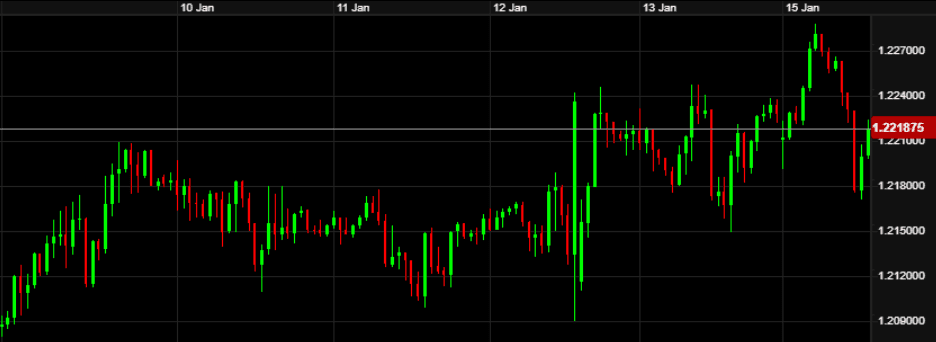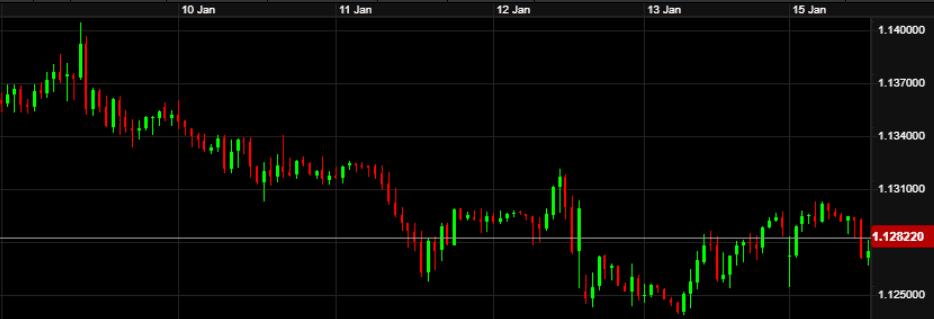ACM Update 16-01-23

The UK economy surprised everyone by growing from October to November, but still shrank on a rolling quarterly basis. Inflation in the US fell to its lowest level in over a year, leading to uncertainty as to whether the Federal Reserve need to stop their rate hikes. For now, it seems that a further 50 basis point hike is likely on 1st
February, at least that is what some Fed members implied last week.
A few surprising data releases, a few widely expected figures last week as markets got fully back into the swing of things post the festive holidays. The main headline-grabbing release was the US CPI figure, showing inflation continues to slow. Annualised inflation came back down again from 7.1% the previous month to 6.5% for December. This was largely attributed to the continued drop in fuel (gasoline) prices, despite other items not dropping as quickly as hoped.
The overall drop is in line with what the Fed have been hoping for from their rate hikes, however after this release there was some uncertainty as to what it means for their ongoing monetary policy. Given the rate at which inflation now seems to be coming down in the US, there is an argument to say that further rate hikes will do more harm than good to the US economy.
For now though, a number of Fed members commented they are still expecting 50 basis points at the next meeting. Atlanta Fed President, Raphael Bostic, suggested rates need to move up to “above 5%” by early in the second quarter and then remain on hold for “a long time”. Meanwhile, St Louis Fed President, James Bullard, also favours interest rates going above 5% “as soon as possible”. Meanwhile Chairman Jay Powell continues to maintain that bringing down inflation requires measures that are not popular, such as sizeable rate hikes.
The Dollar enjoyed a pretty volatile week against the Pound overall, with moves of over 1% in the space of an hour at times, especially in and around the US inflation data. The movements during the week can be seen below:

On the UK side of the Atlantic, Friday morning’s GDP data for the UK economy sprung a surprise with a month-on-month growth from October to November. Following a bounce-back the previous month, expectations were for a drop of -0.2% but a (very fractional) growth of 0.1% was at least the right side of zero.
On a three-month on three-month basis though, the UK economy is still down by -0.3% for Sept-Nov. The widespread industrial action is beginning to become a sizeable factor in these numbers, which doesn’t bode well given that they are, if anything, becoming more frequent. We expect these to weigh heavily on the UK economy and the Pound as we go through Q1 of 2023. Any growth at all could be a struggle for the whole of 2023 according to the Bank of England.
There were speeches from both Bank of England Governor Andrew Bailey, and Chief Economist Huw Pill last week. Bailey’s speech was at an event related to climate change, where he stated that Central Banks will not base their interest rate decisions to assist net zero initiatives. Unsurprisingly, not much market movement off the back of that.
Huw Pill meanwhile warned that the “distinctive” conditions in the UK economy, mean that inflation will be more persistent here than in any of the other G7 economies. The cocktail of higher natural gas prices, a tight labour market, labour supply developments and goods market constraints, are all factors in the current cost of living crisis. Looking at these, they each individually seem unlikely to be improving any time soon. The UK outlook remains, like the weather, gloomy at best.
On the continent a quiet week for Eurozone data. German GDP releases showed the economy managed to avoid a recession for the year, with overall growth of 1.9% in 2022, versus 2.6% in 2021. It did slow however in Q4 of last year. Such growth is a real positive for the Eurozone’s biggest contributor.
French inflation (one of the lower figures in the Eurozone) continued to fall in December, down from 7.1% in November to 6.7% in December. Slowing energy price rises, and how little of these have been passed on to French consumers compared to other countries, continue to be a decisive factor in this.
Overall, the milder winter thus far on the continent is helping reduce demand for expensive energy. This is boosting the Euro, especially against the industrial action on UK shores. As a result, GBP-Euro slipped to its lowest level in just over three months. Movements last week on the pair can be seen in the chart below:

The week ahead:
All Week – World Economic Forum in Davos
Monday – US BANK HOLIDAY (Martin Luther King Day)
Tuesday – UK Unemployment & Claimant Count Data (07:00 UK time), German ZEW Economic Sentiment (10:00), Canadian Inflation (13:30)
Wednesday – Bank of Japan Monetary Policy Rate, UK CPI Inflation (exp 10.5%, 07:00), Eurozone Final CPI (exp 9.2%, 10:00), US Retail Sales (13:30), Federal Reserve Beige Book (19:00)
Thursday – ECB President Christine Lagarde Speech (10:30), US Unemployment Claims (13:30)
Friday – UK Retail Sales (07:00), ECB President Christine Lagarde Speech (10:30)
A busy week for central bankers, prime ministers and senior economists next week, as the World Economic Forum kicks off in Davos, with this year’s theme of “Cooperation in a Fragmented World”. Expect plenty of speeches and announcements from all of the above, which could well cause market volatility.
Worth noting that Monday is a US public holiday for Martin Luther-King day. Thus, US markets will be closed with no Dollar payments moving, and liquidity comparatively low as a result.
Outside of the podiums of Davos, we have some significant pieces of UK data in the form of Unemployment, Inflation and Retail Sales. Unemployment is expected to stabilise at 3.7%, whilst the Bank of England will be hoping that inflation continues to slip back from 10.7% last month. Expectations are for 10.5% this time, but lower would be very much welcomed. Retail sales fell sharply for November, so a bounce back for December would be hoped for, however is unlikely to materialise. Expect Sterling volatility this week.
For Europe, Lagarde’s speeches are the focal point, alongside their own inflation release on Wednesday morning.
The above has all the ingredients for a volatile week, so make sure to get in touch with the Aston team with any requirements. Upside for GBP (especially versus the Dollar and Euro) for now looks likely to be limited. We look forward to hearing from you regarding any particular requirements you may have on the horizon.
Have a great week.